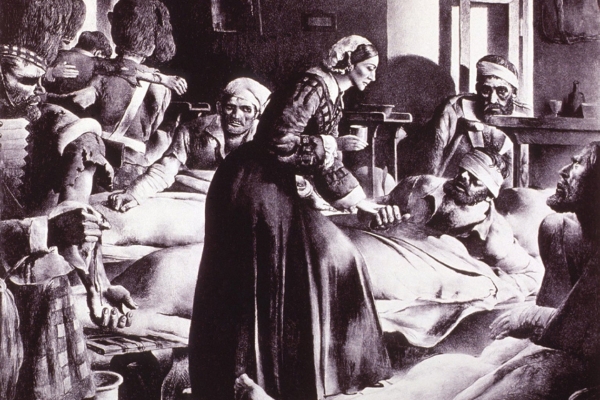8 Interesting Nurse Facts You May Not Know

Nursing is a profession that touches lives not just through medical care but through the compassion and dedication that nurses bring to their daily work. It’s a field marked by its diversity, with a wide range of specialties and opportunities that span the globe. From the emergency rooms to home health care, nurses are on the front lines of health services, offering critical care at all hours. This article aims to shed light on some lesser-known facts about nursing, a profession that combines medical expertise with the human touch in ways that many outside the field may not realize.
Historical Beginnings

Nursing as we know it today has evolved significantly from its origins. While the act of caring for the sick dates back to ancient times, modern nursing began to take shape in the 19th century, thanks to pioneers like Florence Nightingale. Nightingale, often called the founder of modern nursing, introduced the idea that nurses needed formal training and education. Before her time, nursing was considered a mostly informal role filled by family members or servants. Nightingale’s vision led to the establishment of the first scientifically based nursing schools, transforming the profession into a respected, crucial component of medical care. This marked the beginning of professional nursing, with an emphasis on sanitation, patient care, and the use of hospital wards that prioritized hygiene and patient needs.
Fast Track to Becoming a Registered Nurse (RN)
Nursing is unique among healthcare professions because of the variety of paths one can take to enter the field. For those looking to become a RN fast, accelerated programs offer a swift route. These programs are designed for individuals who already hold a bachelor’s degree in another field and wish to transition into nursing. Typically, an accelerated Bachelor of Science in Nursing (BSN) program can be completed in about 12 to 18 months, compared to traditional four-year programs. This fast track is rigorous and condensed, covering the same essentials and clinical experiences as traditional routes but at a faster pace, making it ideal for committed students ready to jump-start their careers in nursing.
Nursing is the Largest Healthcare Profession
Nurses make up the largest group of healthcare professionals, not just in the United States but around the world. With millions registered globally, they are often the primary providers of patient care in hospitals, clinics, and community settings. This predominance in numbers reflects the critical role that nurses play in healthcare delivery—from direct patient care to supporting families in understanding treatment options and managing chronic diseases. The sheer number of nurses also highlights the vast need for skilled healthcare professionals across various settings, underscoring the essential, ongoing demand for nursing skills in the medical field.
Nurses Often Walk Several Miles in a Single Shift

The physical demands of nursing are often surprising to those outside the profession. Studies have shown that during a typical 12-hour shift, a nurse can walk anywhere from four to five miles, rushing between patient rooms, supply closets, and nurses’ stations. This not only highlights the stamina required to be a nurse but also the dedication to patient care. The considerable distance they walk daily ensures that all patients are monitored, medicated, and cared for throughout the day and night. This aspect of nursing goes beyond mere medical tasks; it includes the tireless physical effort that supports their crucial role in healthcare.
Advanced Degrees and Specializations
Nursing offers a wide range of specializations, allowing nurses to focus on areas that interest them the most, such as pediatrics, emergency care, or oncology. Each specialization requires additional training and education, and many nurses pursue further qualifications like a Master of Science in Nursing (MSN) or a Doctorate in Nursing Practice (DNP). These advanced degrees prepare nurses not only to provide more specialized care but also to take on leadership roles within healthcare settings, such as nurse managers or clinical nurse specialists. This level of education enhances their skills and knowledge, leading to better patient outcomes and more efficient healthcare delivery.
Impact of Nurses on Patient Outcomes
Nurses play a vital role in determining the outcomes of patient care. Their constant presence at the bedside and their role in the day-to-day management of patient care allow them to monitor changes in patient conditions, administer medications accurately, and ensure that treatments are effective. Nurses also provide information and support to patients and their families, helping them understand their conditions and the care needed at home. Research has consistently shown that when nurses are extensively involved in the care process, patients experience fewer complications, lower mortality rates, and overall better health outcomes. This underscores the critical influence nurses have on the recovery and well-being of their patients.
Nurses Are Highly Trusted Professionals
Year after year, nurses are rated as one of the most trusted professions according to various polls and surveys. The public’s high level of trust in nurses speaks to the intimate role they play in healthcare, often acting as the main communicators between doctors and patients. This trust is crucial in healthcare settings, where patients must feel comfortable sharing personal and sometimes difficult information. Nurses earn this trust through their consistent display of expertise, empathy, and patient advocacy, ensuring that each patient’s care is a priority and their well-being is vigorously protected.
Global Opportunities in Nursing
The skills and qualifications of nurses are needed worldwide, offering significant opportunities for nurses to work in various countries and cultural settings. Many nurses take advantage of these opportunities to travel and work abroad, experiencing different healthcare systems and expanding their professional horizons. Additionally, with the global nature of health challenges today, such as pandemics and chronic disease management, the demand for skilled nurses across the world is more pronounced than ever. This global perspective not only enhances a nurse’s experience and career development but also contributes to a broader understanding of global health and patient care practices.
Wrapping Up
The nursing profession extends beyond patient care, evolving through history and modern education pathways. With physical demands, specialization opportunities, and global scope, nursing presents challenges and rewards. Society’s trust in nurses underscores their integral role in healthcare, from basic care to specialized medicine. Nurses’ commitment, expertise, and adaptability are crucial to healthcare success. Looking ahead, nurses will continue to shape healthcare delivery, enhancing global patient outcomes.







